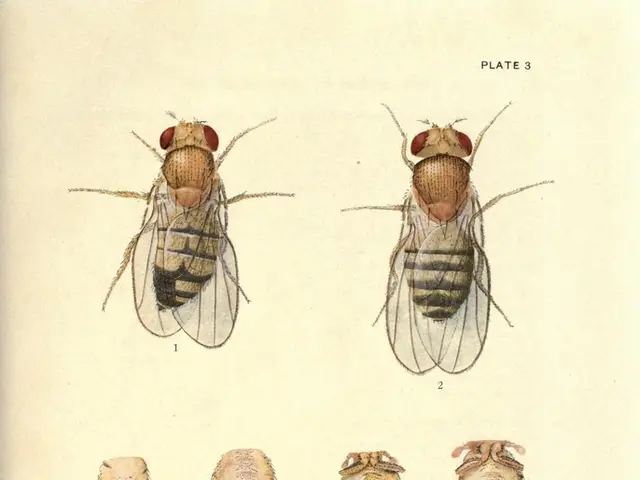In a specific sense, dogs can be likened to children due to their loyal and affectionate nature. - Dogs not children: A fresh perspective on man's best friend as family companions
Why Some Individuals View Dogs as their Children
In households across Germany, a growing number of four-legged friends are treated like cherished children - premium food, cozy attire, and even birthday cakes adorned with dog-themed decorations. This trend, according to researchers, may stem from a decrease in human-child interactions in contemporary society.
In a study published in the European Psychologist, Hungarian researchers noted that pets, particularly dogs, are increasingly assuming the role of companions, with many owners regarding their canine companions as family members and even children.
Dogs, it appears, offer an alternative avenue for companionship that caters to various life stages. For singles, they serve as confidants; for newlyweds, they often take the place of a first-born child; for families with young children, they become playmates; and for the elderly, they provide solace against loneliness, much like grown children would.
Researchers believe that people may channel their biologically motivated caregiving instincts towards dogs. However, it is the dogs' capacity to form a bond similar to that between infants and caregivers that resonates particularly strongly. Unlike children who grow and become more independent, dogs depend on human care throughout their lives.
Moreover, dogs, with their partially childlike characteristics, stimulate humans' natural instinct to care. Some dog owners go to great lengths to ensure their pets' well-being, a level of devotion reminiscent of intensive maternal care.
As of 2024, about a fifth of German households include a dog (21%), with pet food and accessory expenditures reaching approximately seven billion euros annually.
It should be noted that while numerous people consider dogs as substitutes for human children, the decision is not made lightly. Every surveyed owner understood the significant differences between human and dog relationships. Indeed, many opted for dogs specifically because they are not children.
In a theoretical scenario pitting the life of one human against a hundred dogs, most respondents would save the human, highlighting a distinct hierarchy between humans and animals. Also, the chance of a sudden end to the relationship with a dog is higher than with a child, with about three million American dogs ending up in shelters each year.
The relationship with a dog is influenced by societal and cultural factors. While American dog owners may refer to themselves as "mom" or "dad" of their furry "child," the bond is more distant in other countries.
In conclusion, while the emotional and social ties between humans and dogs bear similarities to parent-child relationships, the two are distinct. Dogs offer a meaningful alternative for those who cannot or choose not to have children, satisfying human needs for emotional, social, and practical support in their own unique ways.
- The growing trend of viewing dogs as cherished children might be linked to the decrease in human-child interactions in modern society, as documented in the European Psychologist.
- As a significant number of individuals consider dogs as substitutes for human children, it should be noted that the decision is usually made thoughtfully, understanding the distinct differences between these relationships.








